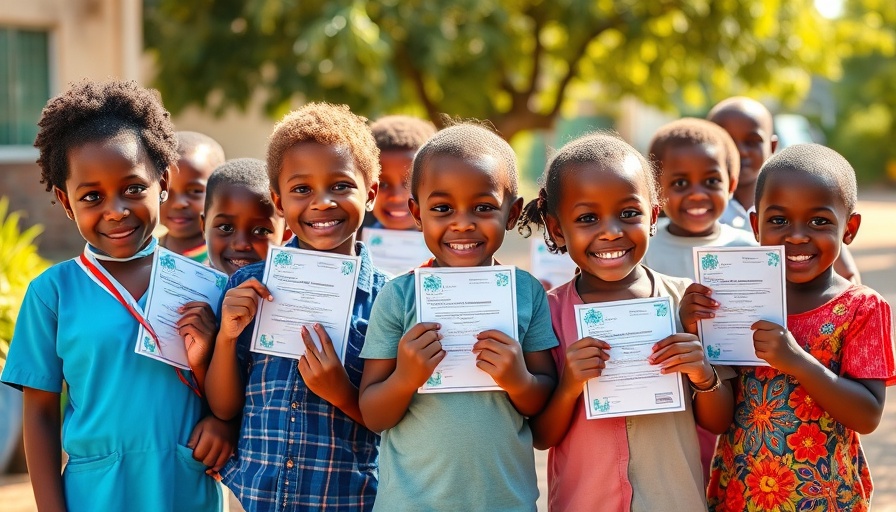
The Vital Role of Immunization in Community Health
Immunization drives like the one conducted at the 15-Mile Seventh-day Adventist Church in Papua New Guinea represent crucial public health initiatives, especially in regions where diseases like polio remain a concern. Vaccinations protect individual children and serve as a powerful tool for community health, helping to prevent outbreaks before they can begin.
Trust in Places of Worship for Health Initiatives
Churches like the 15-Mile Seventh-day Adventist Church are more than just places for spiritual gatherings; they are essential hubs for community engagement, health education, and support. As community health worker Nancy Lawai pointed out during the vaccination event, trusted environments allow health services to reach more children while easing parents’ concerns. The congregation's swift response to the previously alarming rise in polio cases demonstrates the important collaboration between faith-based organizations and health authorities.
Understanding Polio: A Resurgent Threat
Polio may seem like a disease belonging to the past, yet the recent detection of over 31 cases in Papua New Guinea highlights its persistent threat. Polio is a serious infectious disease that can lead to paralysis and even death, making immunizations critical for protecting the youngest members of the community. The work done by churches and health workers in Papua New Guinea acts as a reminder of the importance of vigilance in public health efforts.
A Community's Appreciation for Health Initiatives
The parents who brought their children for vaccinations spoke of their gratitude for such initiatives, revealing a common thread among the members of the Seventh-day Adventist community—their commitment to safeguarding their children’s health. This environment fosters a sense of community, where shared values about health and spirituality converge.
Making an Impact: Expanding Immunization Efforts
This vaccination drive is not an isolated event. It is part of a larger strategy to eradicate polio and improve overall healthcare accessibility in Papua New Guinea and beyond. The proactive initiatives, such as church-based health services, contribute to a broader goal of ensuring that all children receive vital healthcare—something that should be a right, not a privilege.
Future Directions and Community Responsibility
The battle against polio and similar infectious diseases requires a united front—from government action to community organization efforts. Educating families about the significance of vaccinations can help foster a culture of health consciousness, ensuring that younger generations grow up protected from preventable diseases. The reminder of the church's involvement in health initiatives prompts us all to consider our role in advocating for public health.
Take Action: Be a Voice for Health
Through active participation in communal health initiatives, every individual can contribute to the wellbeing of their community. Engage with local health programs, spread awareness about immunization, and remind friends and family about the significance of vaccinations. The health of our children is in our hands; let's work together to protect it.
 Add Row
Add Row  Add
Add 




Write A Comment